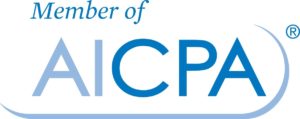As a Senior Level Executive in the financial industry, Shenae Outerbridge has extensive knowledge and experience in a variety of career paths in the field.
Working with the American Institute of Certified Public Accountants (AICPA), Virginia Society of Certified Public Accountants (VSCPA), Chartered Institute of Management Accountants (CIMA), and other professional organizations Shenae Outerbridge has learned the ins and outs of becoming a CPA.
How to Become a CPA
If you are a practicing accountant, or in training to become one, you may be considering the benefits of becoming a CPA (Certified Public Accountant). It’s easy to see why, the benefits associated with the title are real career boosters and the organization offers a range of services including ongoing training, access to support and additional resources, and the opportunity to reach out to potential clients, expand your knowledge and take on new challenges.
As a first step, Shenae Outerbridge recommends doing some research and self-assessment to see if you are ready and properly qualified to apply to become a CPA. The AICPA (American Institute of CPAs) is a reputable organization and expects the highest standards from its affiliates. You will be expected to have all the appropriate training and a certain number of hours of experience under your belt. These specifics vary from state to state so it is worth finding out what the criteria is in your area. Some states also require you to have experience under a licensed CPA member.
When you have assessed that you have the relevant qualifications and experience you will need to make an application through your state board of accountancy. Upon successful application you will be asked to take a Uniform CPA Exam. This exam is computer based and you will be expected to answer questions in varying formats such as multiple choice and written answers.
This exam will demonstrate to the CPA your readiness and eligibility. Shenae Outerbridge also notes that the knowledge and experience gained from your accounting courses will prove highly valuable both during and after the exam. Candidates are required to have completed, or be close to completing 150 semester credits with a minimum bachelors degree and recognized accounting associated courses.
If you’ve managed to pass the CPA exam, congratulations! You are in the minority and have shown great promise toward a coveted CPA membership. But you’re not quite there yet. In some states candidates who have passed this stage are required to take a further ethics exam or course. This is usually straight forward and shouldn’t be nearly so mentally straining as the CPA exam. But it is still a very important part of the process so be prepared.
Once you have been issued with your CPA license you will be expected to renew it either annually or biannually, again dependent on state regulations. In order to maintain your membership you will need to take a number of CPEs (Continued Professional Education) which are logged in hours within a specified time period. Your board will decide what CPEs you need to take and how many hours are required.
Expert Shenae Outerbridge has found that being a part of the AICPA is a highly rewarding career move. Your board will keep you informed and up to date on current affairs affecting your work and you will have the opportunity to attend seminars and receive discounts on the latest accountancy software. The AICPA runs a monthly newsletter. It really is an organization with a well thought out infrastructure and though joining is not a legal requirement it is certainly a strongly recommended one for anyone following the career path.

Leave a Reply